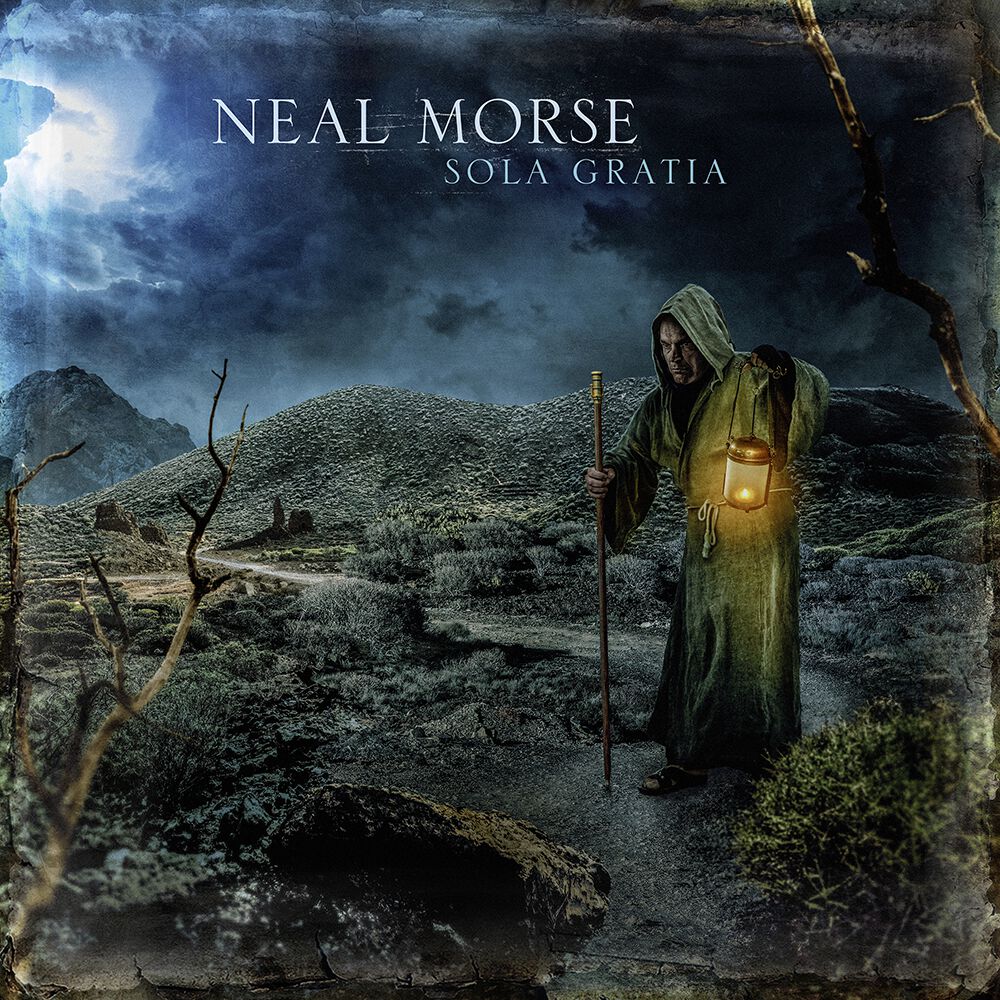The progressive rock of the 1970s is notorious for its indulgence in fantasy themes – knights in shining armor and such. Some of the more outlier artists played with controversial religious topics, even bordering on the evangelical, like the pioneering Finnish prog organist, Jukka Gustavson, who may be more renowned for his contributions in WIGWAM than by his later solo works. Mixing religion with predominantly ”rock” music is often like asking for trouble. Of course, myriad black metal bands have been poignantly vocal on the subject, but quite often by resorting to clichéd forms of satanism, Nazism, or neo-paganism for nothing more than shock value. There are not that many artists who have stuck their necks out on the subject in order to sing praise to the proverbial unmoved mover or the intelligent senior designer – without losing half of their fan base. In general, preachy music that’s pushing some agenda, whether it’s religious or political, has a tendency to put people off. So it’s safe to say that writing music with an implicit or explicit Christian message is an art that requires an enormous amount of skill to avoid the trap of merely annoying the listener to skip the music completely.

Neal Morse is an American multi-instrumentalist, whose name should be more than familiar to fans of SPOCK’S BEARD and TRANSATLANTIC. Much to the shock of the prog world, he left both bands in 2002 to pursue a solo career that has focused almost entirely on making music that’s inherently charged with religious overtones. Along with Gustavson, Neal Morse is one of the very few “religious” artists whose musical contributions are so brilliant that you don’t need to be religious in the slightest to be able to enjoy the music. Morse’s new offering is a concept album, based on the story of the apostle Paul on the road to Damascus, thus dissecting the concept of conversion. The album, “Sola Gratia,” is released on 11 September 2020 via InsideOut Music. You can either take it as yet another fantasy-themed concept album that’s filled with fourteen tracks of prog brilliance or as a personal account of converting to God, dressed in metaphor. To be honest, not every song on the album will speak to you very much if you’re not a particularly religious person, but those tracks that speak outweigh the weaker moments, hands down.
The title of the album, “Sola Gratia,” derives from Latin, meaning “by grace alone.” It refers to the notion that salvation is made possible only by grace, not by our individual endeavors to build up a treasury of merits to count in our favor on Judgment Day. How could a sworn pagan like me get his head around something like this? Well, I can easily bypass the religious idea hinted at by the title and deal with it in a bit more realistic way, based on pragmatic rather than theological considerations: by showing a little grace to one another, let alone to ourselves, there might be a ghost of a chance to save us from ourselves.
Neal Morse has a way of writing about faith in an ambiguous enough style so that you can’t write his music off as mere religious propaganda. Of course, it helps a lot that the music is prog of the finest caliber. The absolute pinnacle track on the album is “Seemingly Sincere,” which modulates by turns like the atmospheric PINK FLOYD classics and the iconic DEEP PURPLE power-ballads, before bursting into a frenzied Moog solo. Even at its most preachy, the album steers clear from the pure gospel realms. The least impressive track – for a justified sinner like me – turned out to be the song singing the most straightforward praise to God, “The Glory of the Lord.” On the other hand, the song is quite an AOR-tinted ballad anyway, and I can’t say I’m particularly fond of those, no matter what the lyrics sing about. Mr. Morse could be singing about riding a bike for all I care.
I must confess that I’m a bit of an idiot when it comes to music: I do not pay that much attention to the lyrics. Impressive lyrics are a nice bonus, but they couldn’t possibly save an otherwise crappy song. With Neal Morse‘s new album, there is no need to fear that the musical substance would let you down. All the fundamental tenets of the progressive rock brethren are conveniently omnipresent on the album – such as the prominent instrumentalism in the solos and the oddball riffing in songs such as “Sola Intermezzo,” “Overture,” and “Warmer than the Sunshine.” Maybe the album comes with a few too many ballady songs, but fortunately, most of them are executed in the style of PINK FLOYD, with Morse channeling the spirit of David Gilmour rather nicely on the guitar, especially on the track, “Never Change.“
At first, you might be tempted to think that a concept album based on a character from the early Christian history books would not have very much to offer in 2020 AD. At face value, it is a concept that has that particular ring of overindulgence to it, reminiscent of those few particularly horrid concept albums from the 1970s. In Neal Morse‘s defense, it must be stated that he has managed to weave the narrative of the self-conflicted protagonist going through a life-changing transformation in a rather pleasing musical attire. If my golden ears spotted a few minor blemishes, they fall into the matters-of-taste category, which is beyond dispute. For the true prog-lovers with the acquired taste for the vintage, hard rock-tinted blend of progressive rock, “Sola Gratia” will most likely prove to be an album worth buying, regardless of their view of the world.
Written by Jani Lehtinen
Tracklist
- Preface
- Overture
- In the Name of the Lord
- Ballyhoo (The Chosen Ones)
- March of the Pharisees
- Building A Wall
- Sola Intermezzo
- Overflow
- Warmer Than the Sunshine
- Never Change
- Seemingly Sincere
- The Light on the Road to Damascus
- The Glory of the Lord
- Now I Can See/The Great Commission
Lineup
Neal Morse – vocals, guitar, keyboards
Mike Portnoy – drums
Randy George – bass
Gideon Klein – strings
Label
InsideOut Music
Links
Https://nealmorse.com/
https://www.facebook.com/nealmorse/
https://twitter.com/nealmorse





